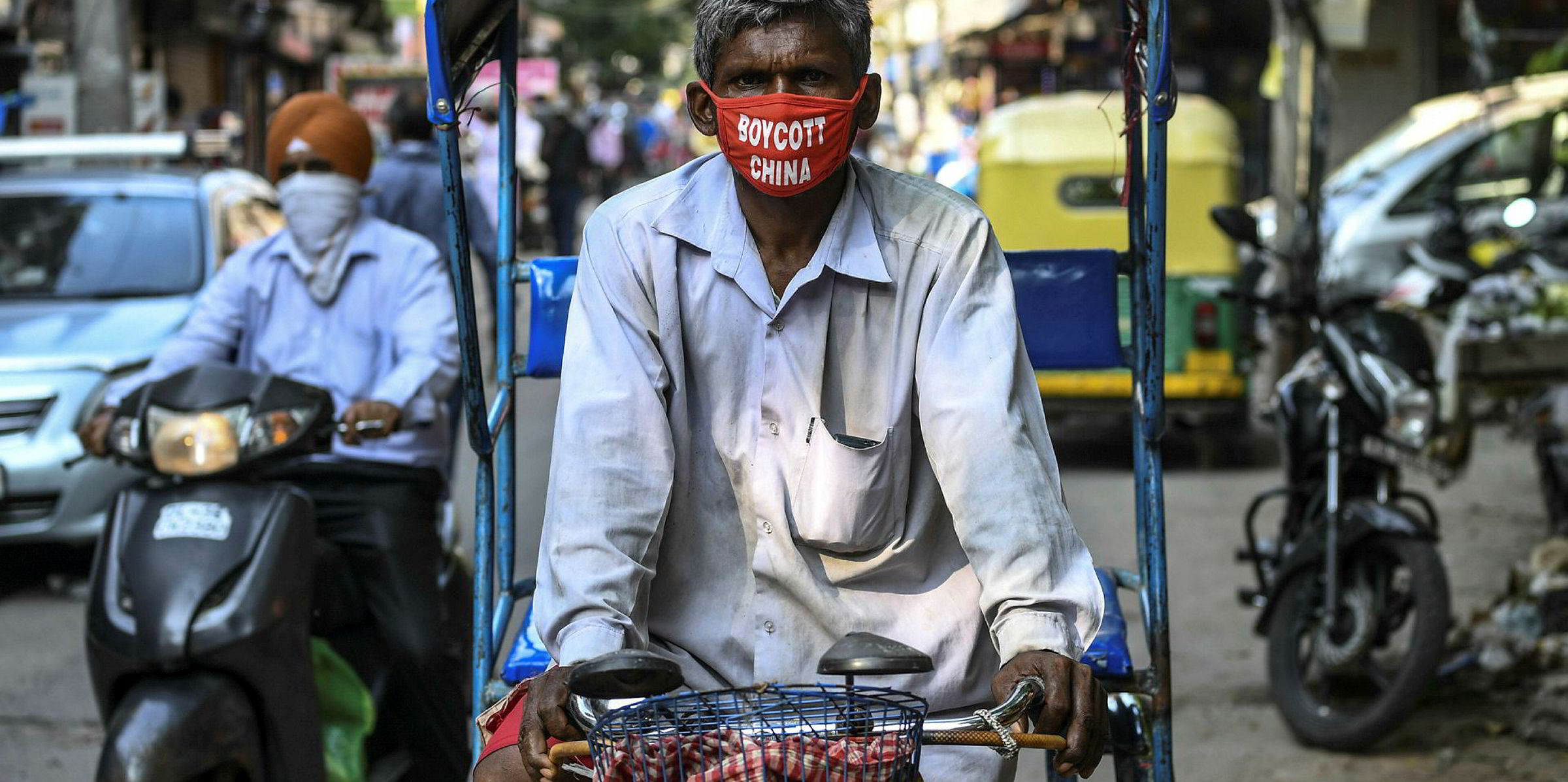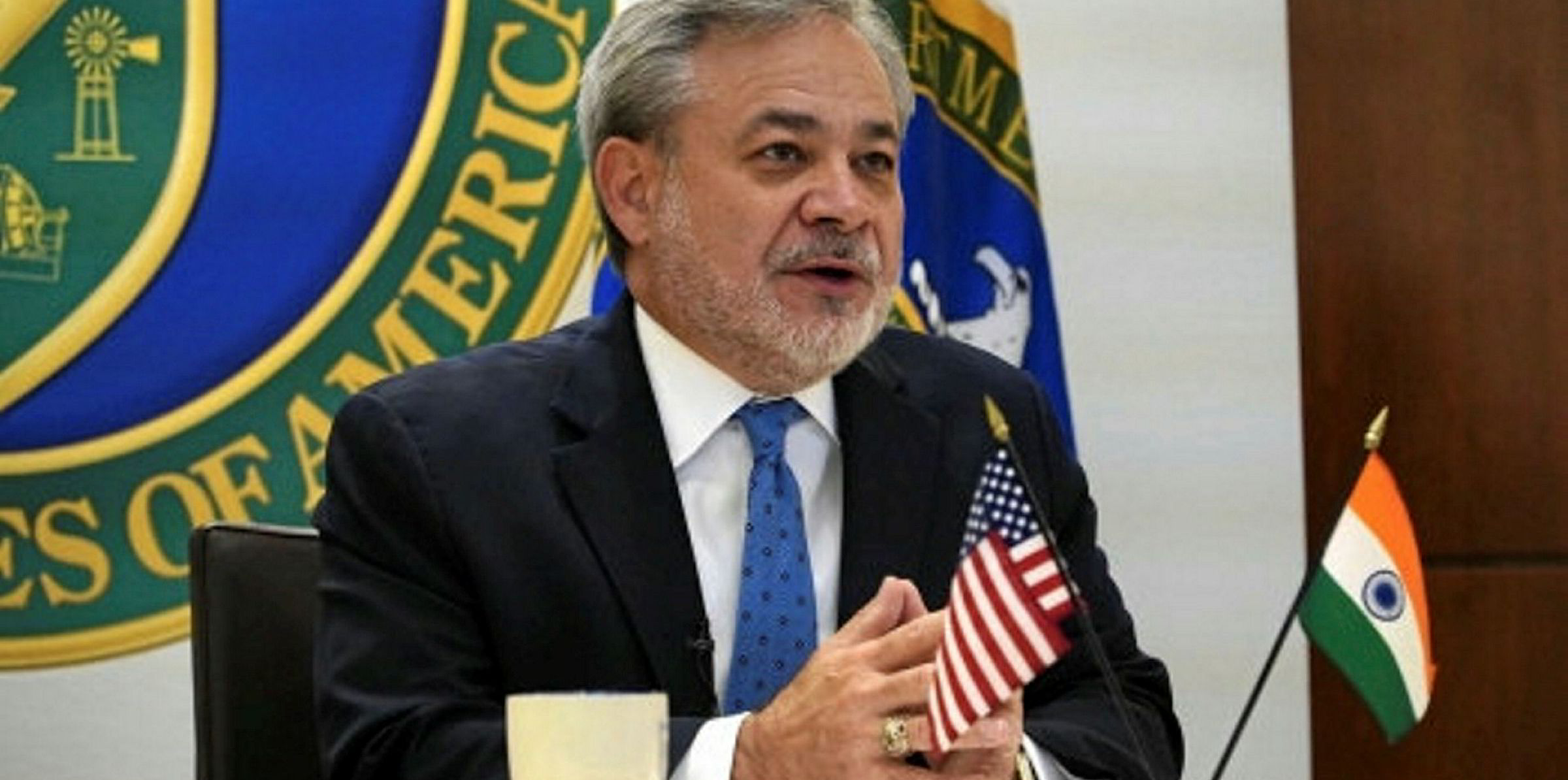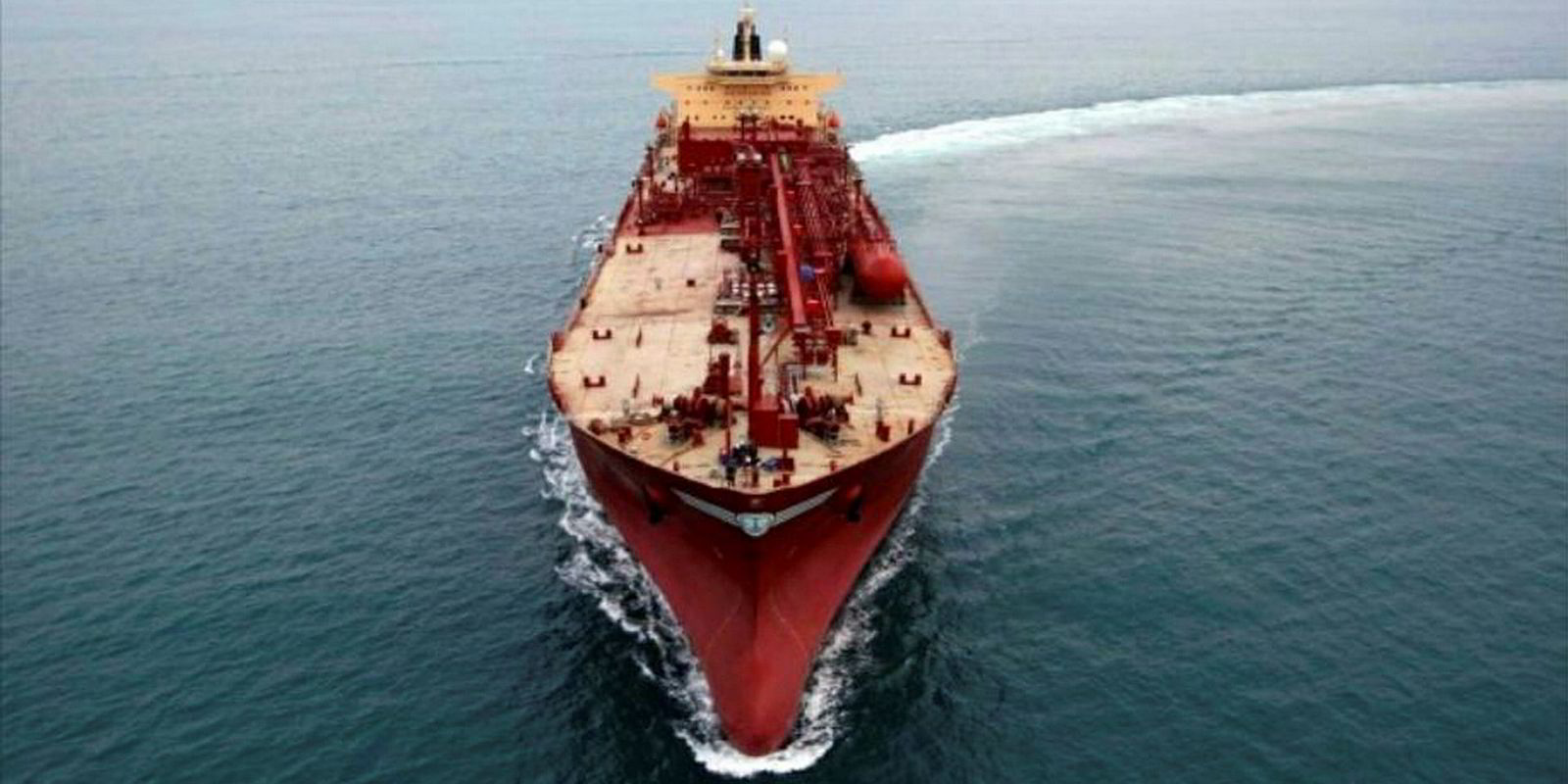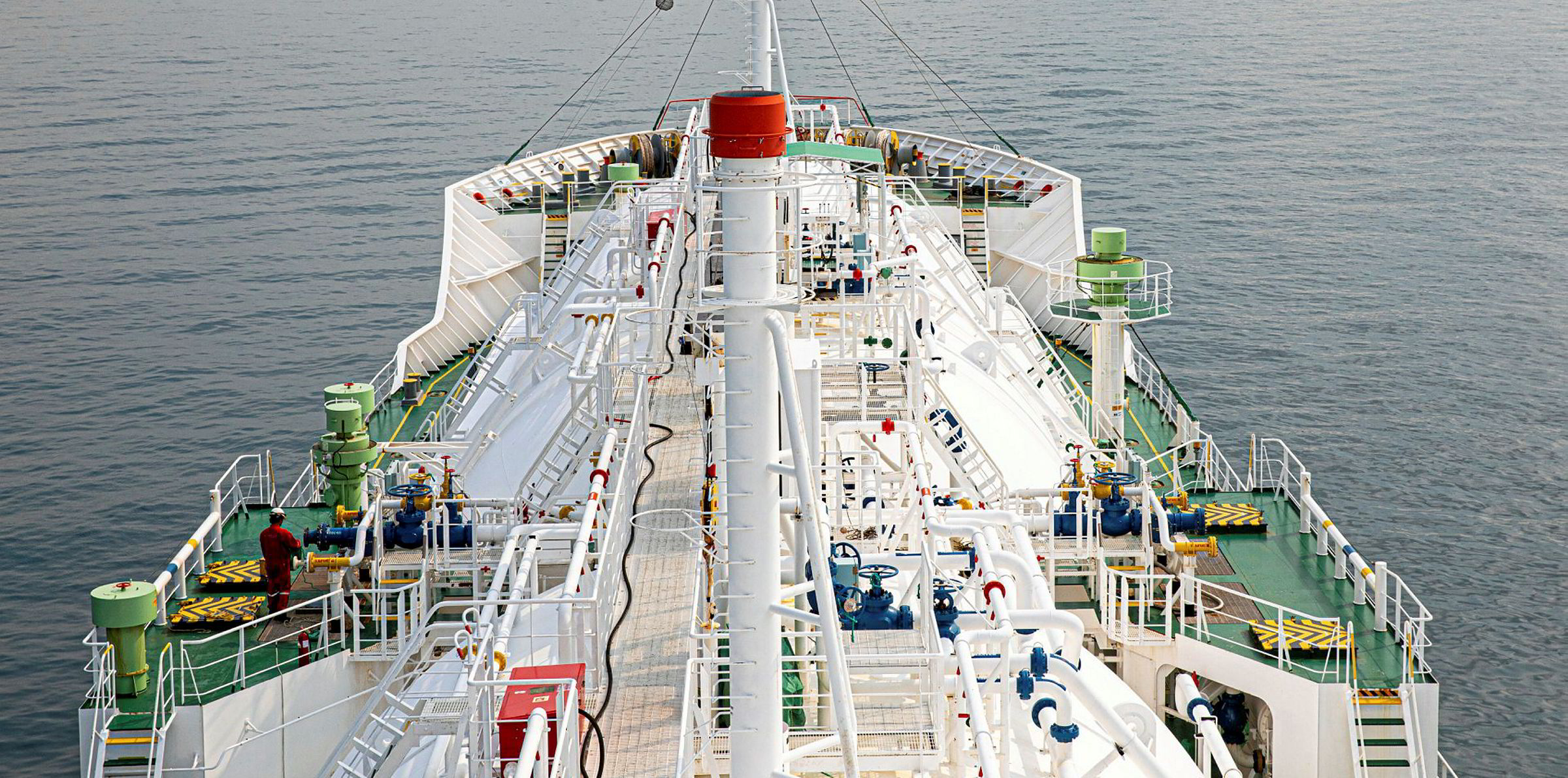Indian charterers are seeking clarity about New Delhi’s restrictions on doing business with China.
Geopolitical tensions between the two countries are making themselves felt in shipping, not least because of the heavy involvement of Indian state-controlled companies as charterers, importers and shipowners.
But many specifics of a set of new restrictions remain unclear, including the status of Hong Kong companies and the Hong Kong flag, and how third-party time charters will be affected.
In a circular issued on 23 July, the Ministry of Finance in New Delhi forbade government-owned entities and public-private partnerships from doing business with Chinese-owned companies or partnerships with more than 25% Chinese control.
But it has yet to make clear how the broad provisions of the measure apply to the realities of international shipping. State-owned charterers have asked the Ministry of Shipping to rule on the question.
According to local press reports, the new restrictions take the form of an amendment to India’s General Financial Rules.
They are issued in the name of national security and do not mention China by name. But they apply to all countries sharing a land border with India, allowing certain exceptions that do not include China.
Exceptions can be granted for specific companies through application to the Department for Promotion of Industry and Internal Trade, subject to political and security clearance from the ministries of external affairs and home affairs.
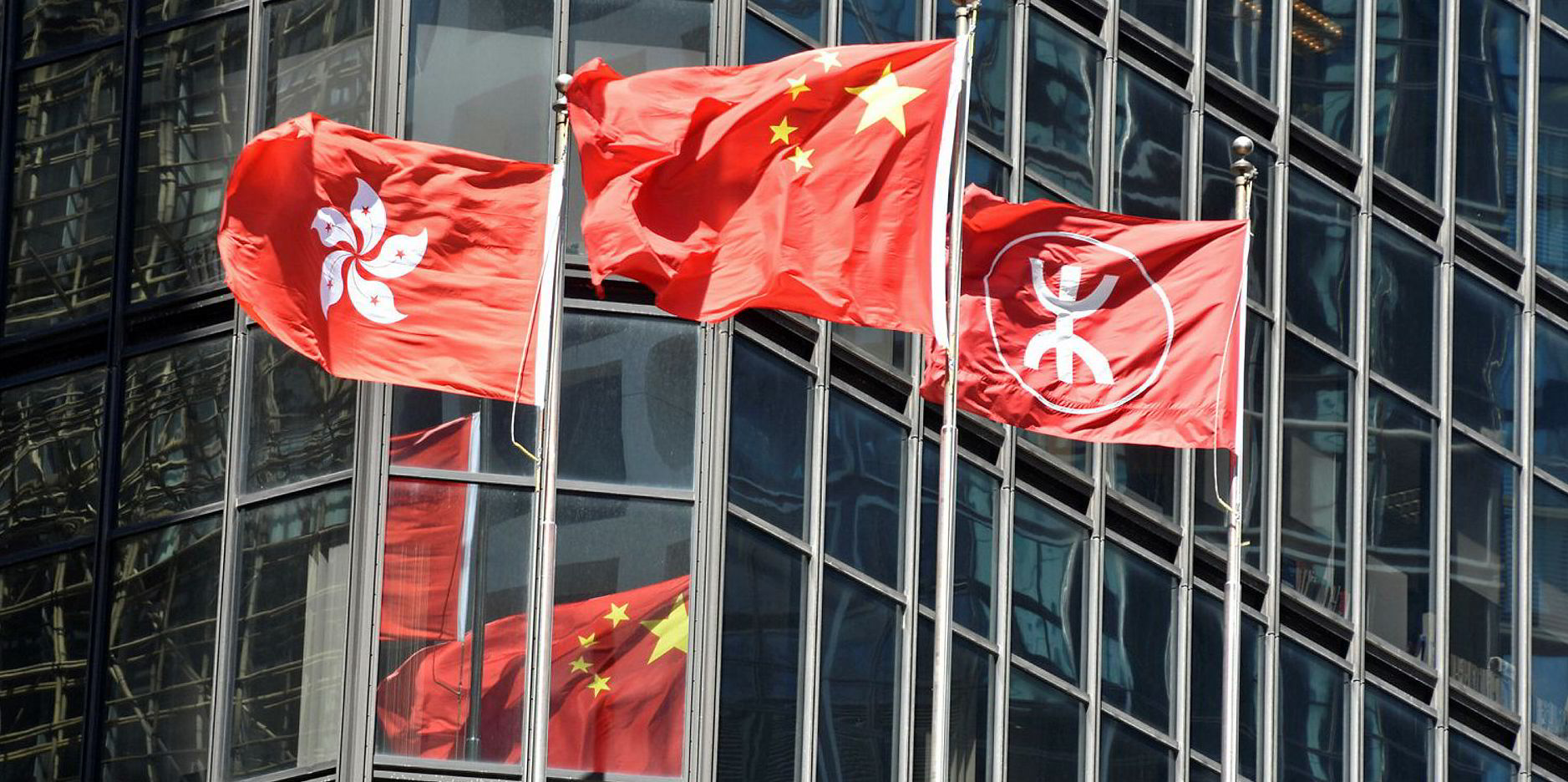
The move has already resulted in lost business for Chinese-controlled dry bulk owners. In oil and gas shipping, the immediate effects are less, because of the long-term nature of much chartering business with China.
Existing charters are not affected by the new restrictions, but Chinese bidders are out of the game for tenders still in process or contracts not finalised. And a number of other borderline cases pose questions.
Relations have been tense between India and China since deadly clashes between their forces in June.
Fighting broke out along the Line of Actual Control in India’s northern Ladakh territory between Indian troops and Chinese military based in Tibet. Twenty Indian soldiers were killed. China has not confirmed how many of its own forces died.
Beijing has played down the conflict amid Indian calls for a boycott of Chinese imports. Chinese customs figures suggest that Indian imports of Chinese goods were down by as much as 25% year-on-year in August. However, India has struggled to find credible means of disengaging from Chinese sourcing without harming its own economy.
“It is clear that a directly Chinese-owned company is not able to participate in a tender for an Indian company, nor is it allowed to sell cargoes into India,” one shipbroker said.
“The charter-hire beneficiary cannot be a Chinese company, that much is clear. But if Shell has a Chinese ship time-chartered in, can it trade here or not?”
The question of Hong Kong’s status also comes into play. “Chinese-flagged ships are out, but are Hong Kong-flagged ships considered Chinese-flagged? No one knows,” the broker said.
“This is the kind of clarity that people need from the Ministry of Shipping. Charterers are asking them to use the circular to make shipping specific rules. Nobody wants to be caught on the wrong side of the law.”
The effects are being felt differently across different sectors of shipping.
Late last week, state-owned charterer Steel Authority of India took dry bulk brokers in China by surprise when it turned up its nose at a series of Chinese-owned panamaxes. The company is usually a reliable source of Australia to India business for Chinese owners.
In oil and gas shipping, brokers told TradeWinds that no unconcluded charters were in the works at the time the new circular was released.
The restrictions do not call for done deals to be undone.
For example, a Sinogas and China Development Bank Financial Leasing-controlled VLGC, the 80,200-cbm Gas Beryl (built 2010), is under charter to India’s Hindustan Petroleum Corp under a deal done two years ago. The parties have learned that the charter will run as normal until it ends in December.
Brokers in both countries told TradeWinds this week that international shipping has been slow to notice the Indian initiative.
Only a few enquiries on the subject have come from shipping companies abroad, although domestic awareness of the measure is high.
“We have not exactly advertised the new restrictions to our Chinese counterparties unless they have asked,” one broker said. “We are somewhat in the dark ourselves.”
